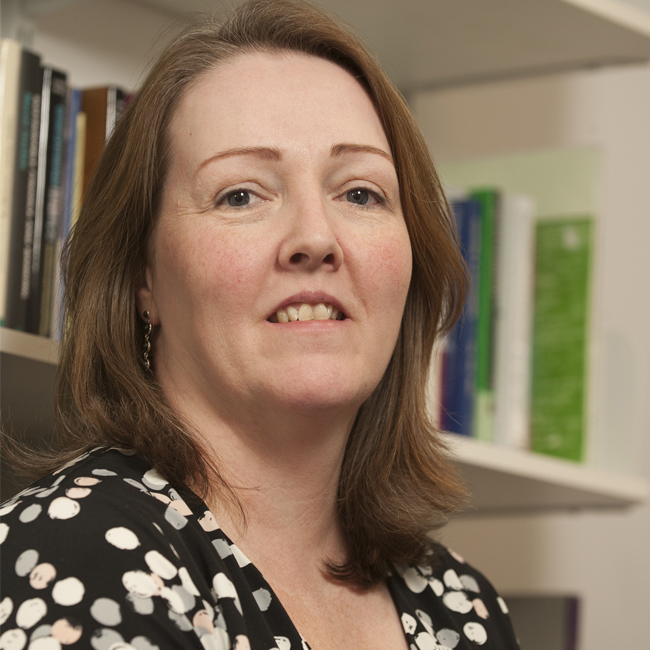Primed for responsible management education
By Andrea Coulson - Posted on 19 May 2016Strathclyde Business School is a signatory to the UN’s Principles of Responsible Management Education. Dr Andrea Coulson, Head of SBS PRME Working Group, looks at PRME and what that means for the Business School.
Sustainability is something that’s been a part of what we do at Strathclyde Business School for a long time now – in teaching, research and knowledge exchange - but this was formalised when we decided to sign up to the UN’s Principles of Responsible Management Education (PRME) in 2011.
While compiling our first report for PRME on how we integrate the principles into our strategy and everyday actions, we weren’t surprised to find we had a lot to say across the business school.
Pulling together what we do in terms of sustainability for the PRME report has allowed us to demonstrate what colleagues are doing across the business school in terms of responsible management education, how we are incorporating this into our teaching and student activities, and how the business school as an institution is addressing sustainability issues.
From a personal point of view my research has been concerned with social and environmental accounting since I first started work on my PhD. A big part of my research is looking at whether people/companies are just paying lip service to sustainability or are they putting their ‘values' into practice?
For Strathclyde Business School, PRME has been a good way of making visible what we've already been doing on a long-term basis. It's embedded in our teaching, knowledge exchange, and research.
All our undergraduate students take part in a core Social Responsibility class as part of our Management Development Programme. This has been a compulsory element and is set to become a larger component in the next academic year. We hope this shows that social education is just as important as business education or international education, and increasing its scope means it's more impactful in the community.
In terms of Knowledge Exchange one of the things we offer are business clinics. Organisations and students work together, along with key academic staff, to address an issue relating to social responsibility. Over the past two years around 50 organisations and 150 students have been involved and this credit-bearing work has made a real impact to the participating organisations. The fact that our Business Clinics form part of the curriculum for our students is rather unique to the sector as, in most cases, such initiatives are seen as more of an extracurricular type of activity. This is an experience that students benefit greatly from, and their new awareness of social responsibility remains with them, beyond the completion of their programme.
In terms of research, one example is the Centre for Health Policy, a collaboration between SBS, HaSS and Engineering, which utilises the institutional knowledge in the areas of public health and management. The Centre produces high quality analysis and development of policies to enhance the effectiveness and sustainability of public health systems within Scotland, focusing on three main areas: finance, inequalities and demography.
My research and knowledge exchange focus at present is on the Business Case for a Living Wage. It is important for me that I'm engaged with, and accountable to, multi-stakeholder representatives from: corporate leaders to small businesses in their supply chain; human relations directors to living wage employees; government policy makers, trade unions and citizens groups such as the Living Wage Foundation UK/Poverty Alliance in Scotland among others.
Sustainability is also an important factor for the bodies which accredit business schools - AMBA, EQUIS and AACSB - and this is likely to become an even more important factor in the future. Indeed, all three accreditation bodies currently sit on the PRME steering committee, and have been involved in the development of the PRME initiative since its inception. To reflect their commitment to the PRME agenda, AACSB and EQUIS have recently revised their standards to include an increased emphasis in the area of social responsibility, demonstrating the critical role that business schools have to play as drivers of change.
As a business school, we need to support work that is not just about profit, but about helping society, working in partnership with third sector groups and charities, to help them be the best they can be.
Principles of responsibility underpin the UN system. As recognised by Professor Michael Kelly (Chair of the Passage, a UK trust supporting homeless people) specific sector initiatives highlight UN representation and sectoral commitments on responsibility. For example, UNEP Finance Initiative's Principles for Responsible Investment are now underwritten by almost 1500 signatories covering US$ 60 trillion under management. Sectoral principles have driven behaviour change in those sectors, and the UN's Principles for Responsible Management Education is set up for the same goal - to produce managers who don't just think of profits and the good of the company but the good of society as well.
The fact the UN has set up PRME shows how important business schools and its educative work is to business and the world in general. In line with our ethos of ‘useful learning’, we want to continue to produce research – and graduates - that are beneficial to society.










